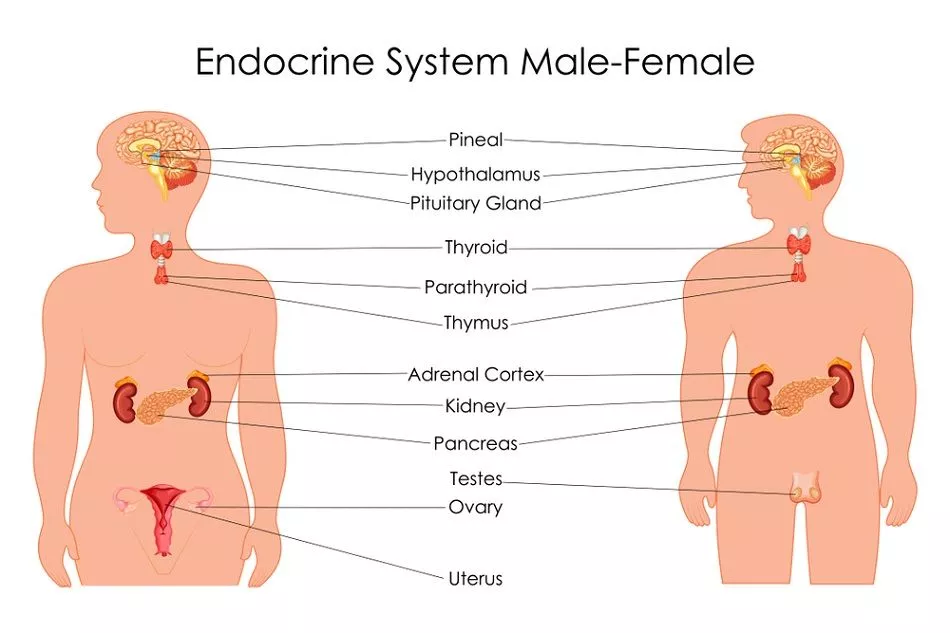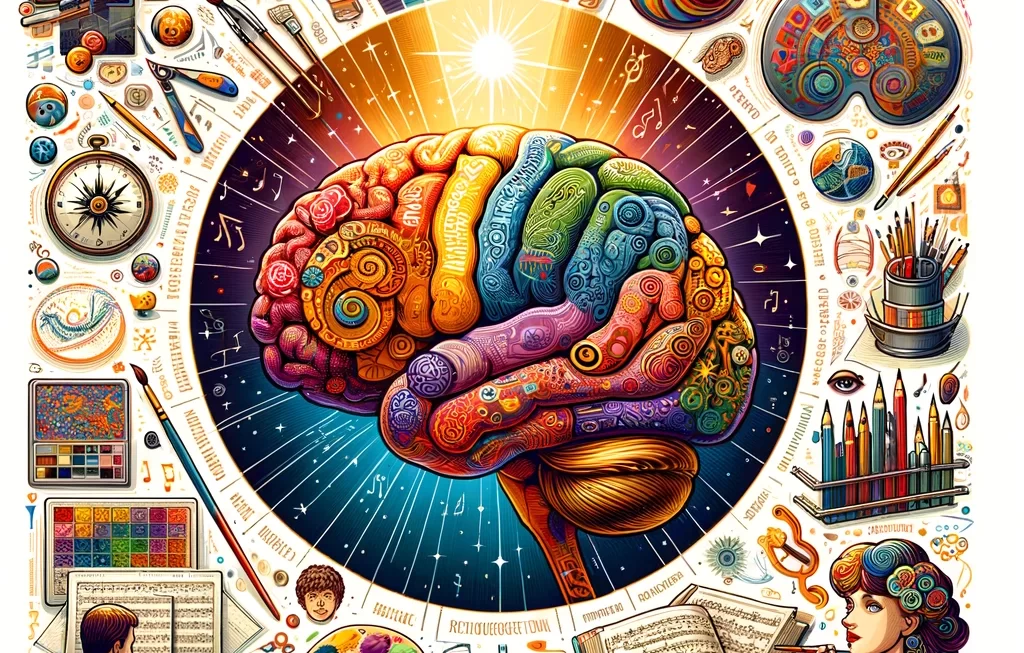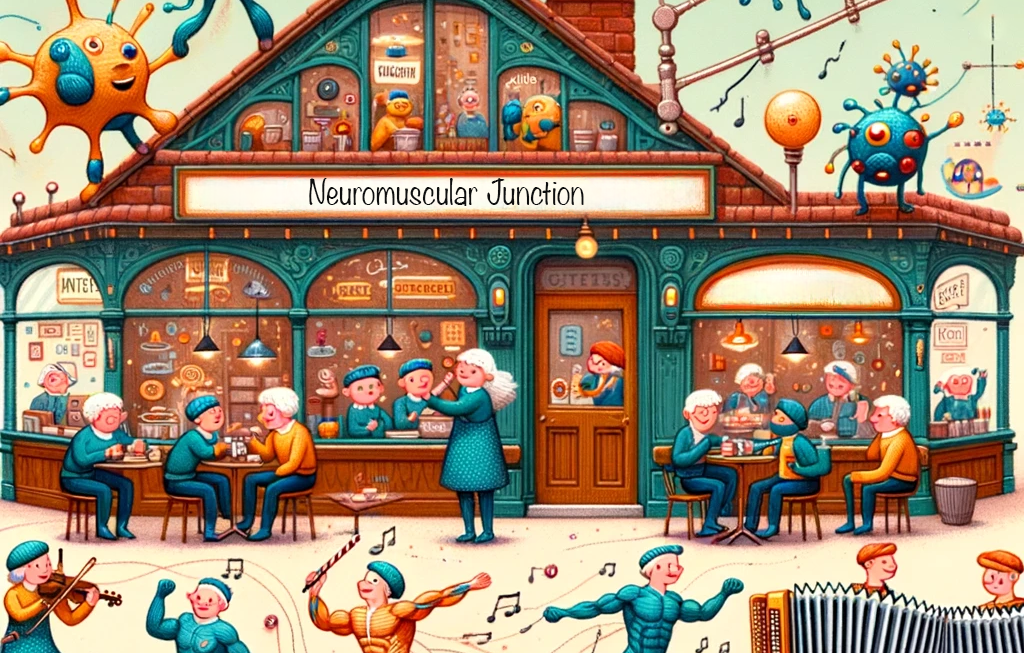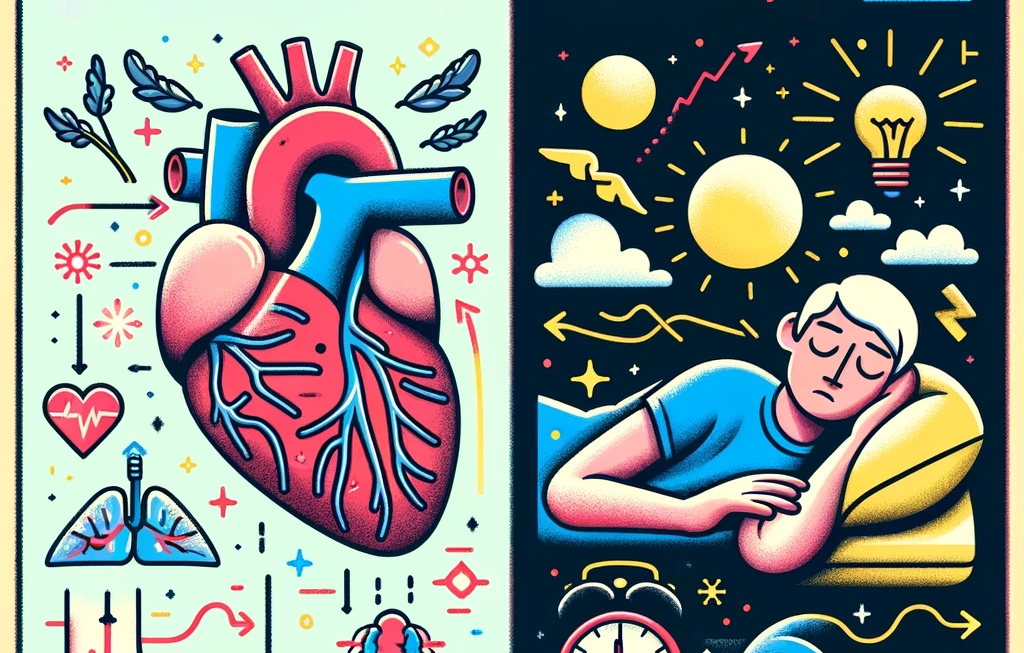Welcome to the fascinating world of glands! Think of your body as a big city, with lots of messages needing to get from one place to another to keep everything running smoothly. Glands are like the post offices of your body, sending important messages that help you grow, digest food, stay energized, and even handle stress. Let’s break down what glands do in a way that’s easy to understand.
What Are Glands?
Glands are special parts of your body that send out messages in the form of chemicals. These chemicals can be hormones, which are like tiny messengers that travel in your bloodstream, or other substances like sweat or saliva. There are two main types of glands: endocrine and exocrine. Let’s find out what they do!
Endocrine Glands: The Invisible Messengers
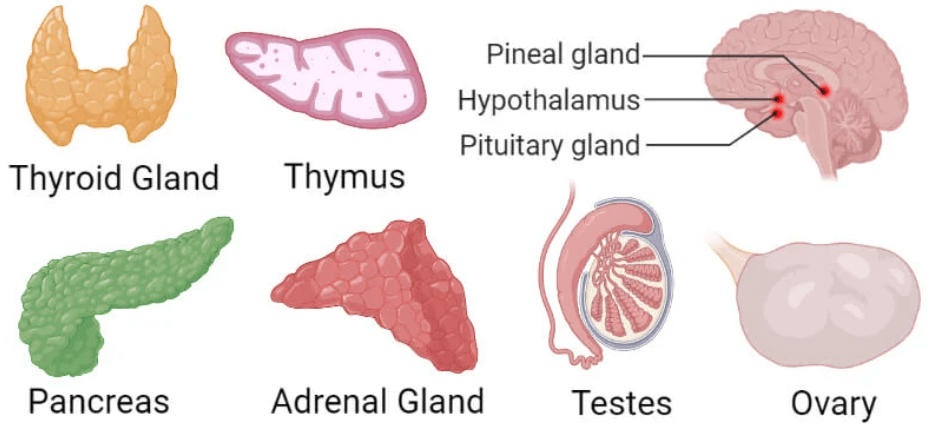
Endocrine glands are like secret agents. They send hormones directly into your blood without using any pathways or ducts. These hormones travel all over your body and tell different parts what to do. For example, they can tell your body to grow, help you deal with stress, or control how much sugar is in your blood.
Some Important Endocrine Glands:
- Pituitary Gland: This is the boss of all glands. It sends out orders to other glands about making their hormones.
- Thyroid Gland: It’s like the thermostat of your body. It controls how fast you burn energy.
- Adrenal Glands: These get you ready to run fast or fight in stressful situations.
- Pancreas: It’s a kitchen chef, deciding how much sugar stays in your blood.
- Gonads (Ovaries and Testes): These are involved in making babies and also in making you look more like a grown-up during puberty.
Exocrine Glands: The Local Deliveries
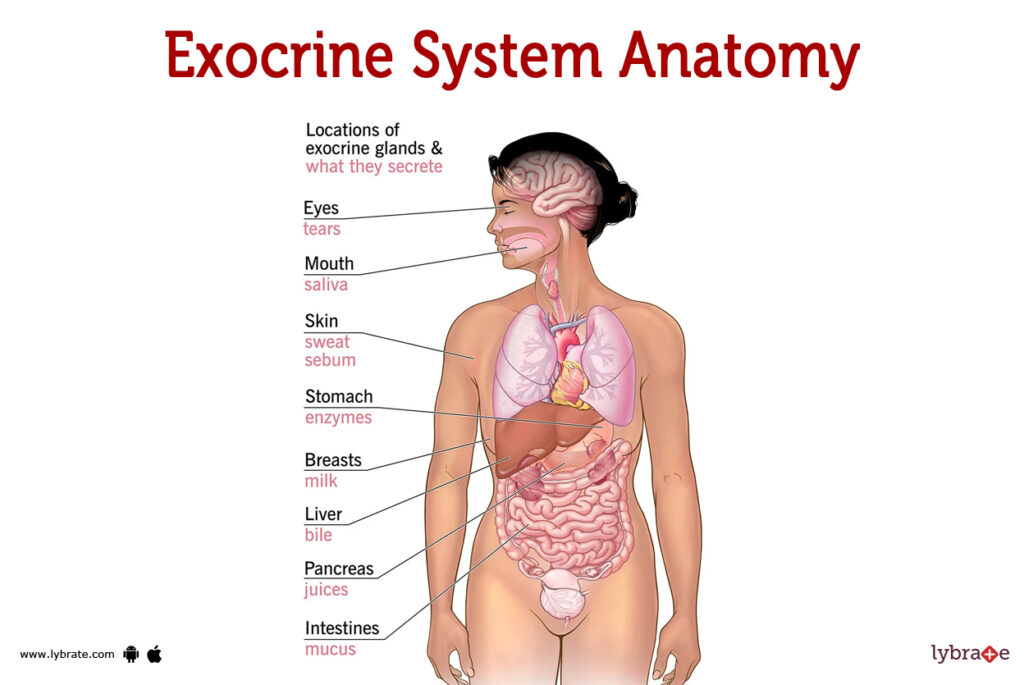
Exocrine glands have a different job. They send their messages through tubes (called ducts) to the surface of your skin or into your digestive system. These messages are not hormones but things like sweat, saliva, and digestive juices.
Some Exocrine Glands:
- Sweat Glands: Keep you cool when it’s hot.
- Salivary Glands: Help you start digesting your food by making saliva.
- Sebaceous Glands: Keep your skin and hair greasy and happy.
The Difference Between Endocrine and Exocrine
The main difference is how they send their messages. Endocrine glands are like sending an email—it goes directly to where it needs to go without anyone seeing it. Exocrine glands are more like mailing a letter; it goes through a tube (duct) and ends up right where you can see it, like sweat on your skin.
Why Are Glands Important?
Without glands, your body wouldn’t know how to grow, digest food, or do a lot of important stuff. They help keep everything in balance, like making sure you have enough energy and that you grow at the right pace.
Glands might seem small and unimportant, but they’re actually superstars in keeping you healthy and happy. They make sure the right messages get to the right places at the right time. So next time you sweat, digest a meal, or feel your heart beat faster when you’re nervous, thank your glands for doing their job!

